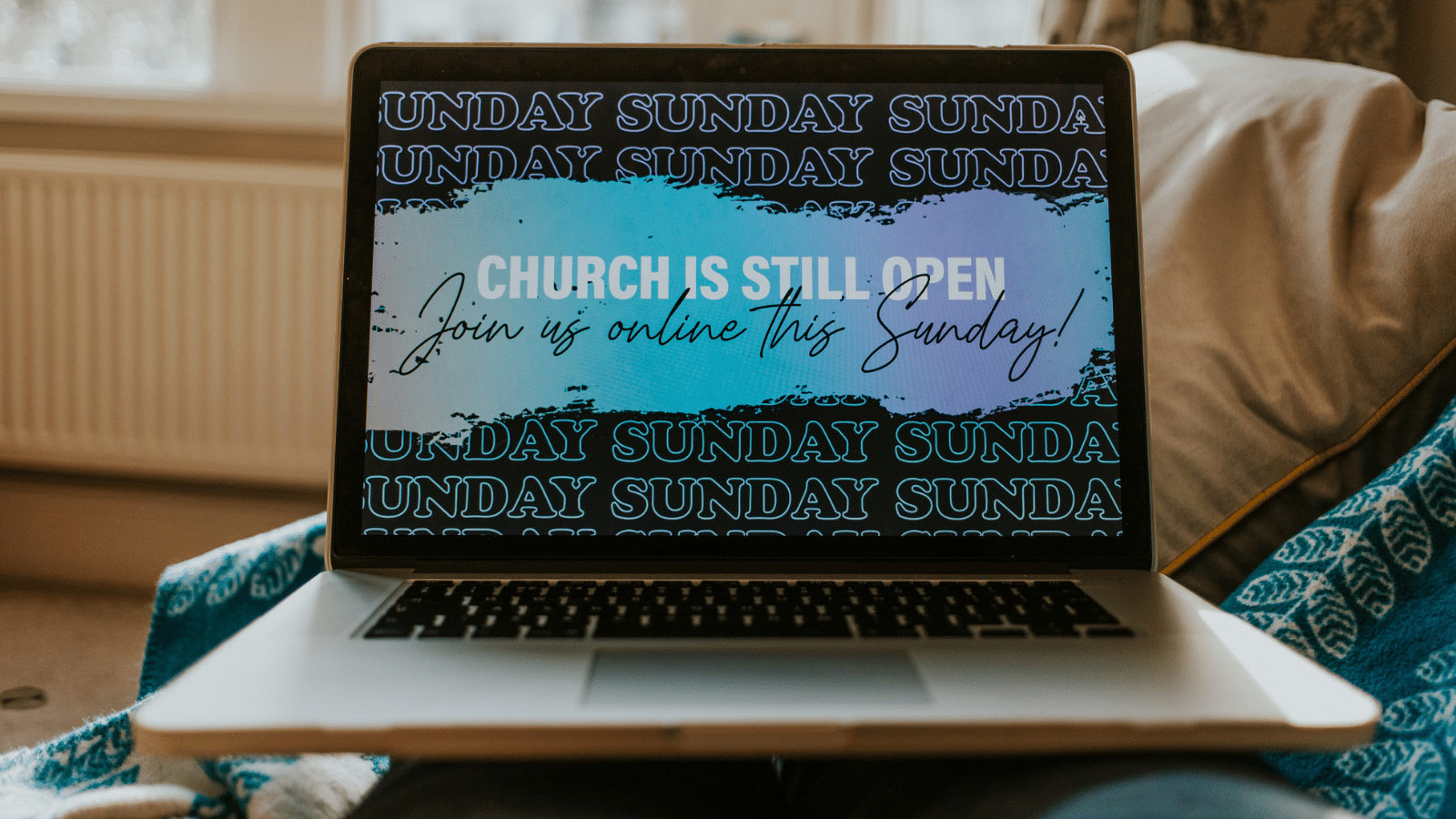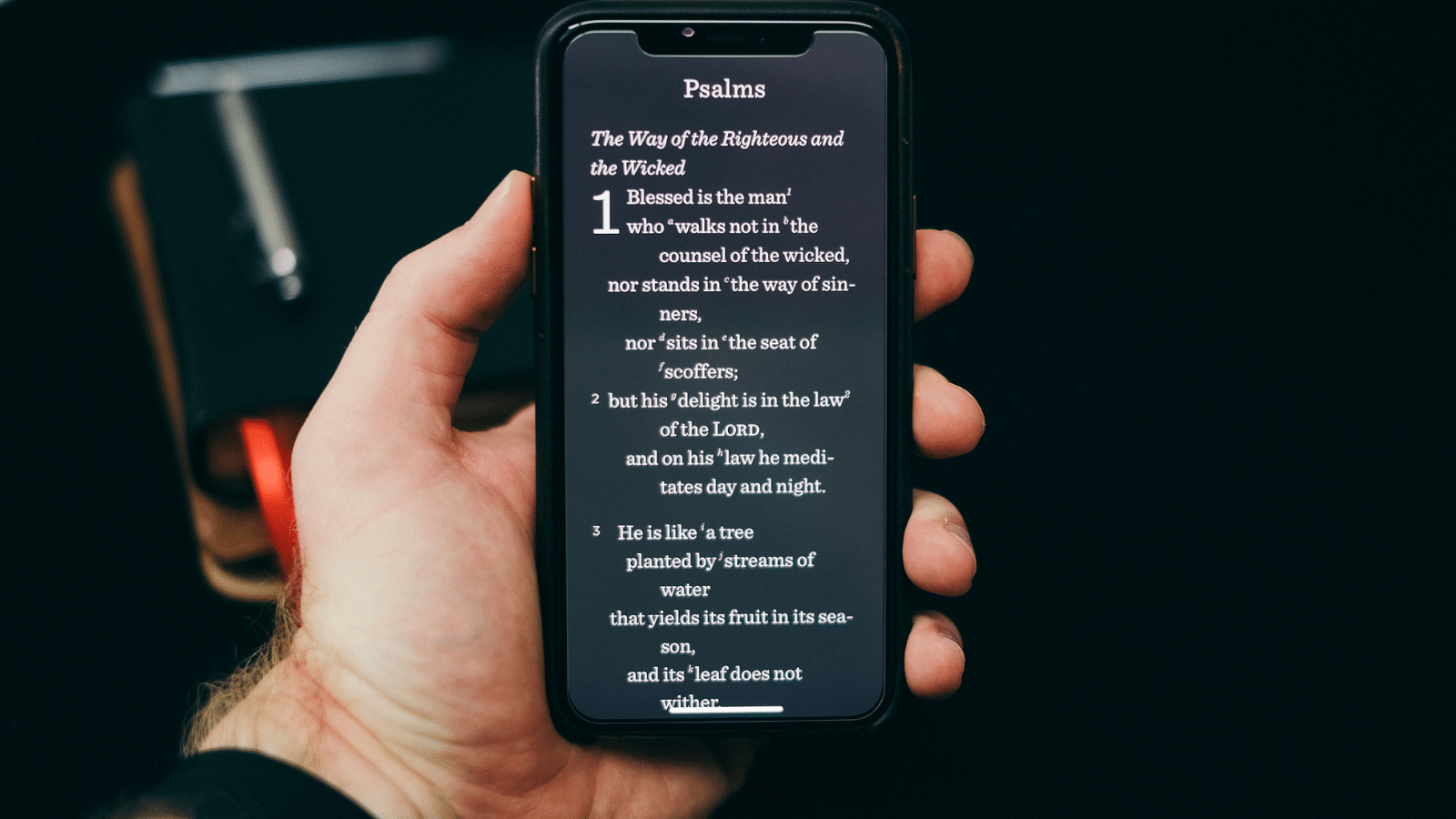The Future of Faith: 14 Surprising Ways Technology is Shaping Religion
In our digital age, traditional religious practices are getting a tech makeover, and it’s more surprising than you might think. This article dives into “The Future of Faith,” exploring 14 unexpected ways technology is changing and redefining how we experience religion.
From virtual pilgrimages to AI-guided spiritual insights, these technological advancements are not just tools; they’re shaping a new era for faith. Join us on this eye-opening journey to uncover the surprising ways technology is weaving into the fabric of the future of faith.
1. Digital Congregations and Worship Services

Live streaming and virtual reality have revolutionized how people engage with their faith communities, allowing remote participation in religious activities from the comfort of one’s home. With live streaming, individuals can tune into real-time religious events, breaking down geographical barriers and accommodating those with mobility constraints.
Virtual reality takes this further by immersing users in a virtual representation of their place of worship, enhancing the spiritual experience with a sense of physical presence. These technologies enable a more inclusive and convenient approach to religious practice, connecting the faithful regardless of their physical location and adapting to the digital age.
2. Religious Apps for Daily Guidance

Today, there are many religious apps available on smartphones. These apps provide daily prayers, readings from sacred texts, and spiritual guidance. They help people keep their faith alive in their busy lives by making it easy to access these resources whenever they have a moment, like during a break or while commuting.
With the help of these apps, people can easily maintain their religious connections despite leading busy lives that heavily rely on technology.
3. Online Devotional and Study Groups

Technology allows people to join online religious groups where they can study, talk about their faith, and pray together, no matter where they are. These digital communities create a strong sense of togetherness, even when they can’t meet in person.
People connect based on their shared faith, experiences, and spiritual goals, offering each other support and friendship. This digital fellowship is especially helpful when getting together in person is tricky.
4. Social Media and Faith

Social media has become a platform for religious leaders to reach a broad audience, breaking geographical boundaries. Hashtags like #SundaySermon and #PrayTogether act as markers, guiding users to discussions about faith and spirituality.
These hashtags bring together like-minded individuals, creating a space for them to discuss their beliefs, share their experiences, and support each other. Social media serves as a digital congregation, allowing religious leaders and congregants to connect, seek guidance, offer prayers, and engage in meaningful conversations.
5. Digital Prayer Requests

Online prayer request forms and websites are a digital way for people to seek help and support from their faith communities. These platforms allow individuals to share their troubles and ask for assistance related to health, family, work, or other challenges.
Members of the faith community can respond by offering prayers, comforting messages, and support. This technology acts as a bridge, connecting those in need with those ready to help, promoting unity and compassion within the faith community, and providing comfort during difficult times.
6. AI Chatbots for Spiritual Guidance

Artificial intelligence chatbots are being created to help people with their spiritual questions and concerns. These bots provide a way for users to have conversations about their faith, religious practices, or personal challenges.
Users can chat with these bots anytime, as they are available 24/7. These chatbots are like a listening ear, providing spiritual guidance when no human counselor or leader is available. They offer a private and non-judgmental space for individuals to discuss their faith and uncertainties. While these chatbots can’t replace human guidance, they are a helpful resource for people seeking spiritual insights and support in an ever-changing world.
7. Religious Podcasts and Webinars

Podcasts and webinars have become popular ways for religious leaders and experts to share knowledge. They’re accessible because you can listen to or watch them during your daily activities.
Podcasts let you tune into religious talks and discussions, while webinars offer real-time interaction with experts, like attending a seminar. These digital tools make it easy to learn about religion and spirituality and fit it into our busy lives, adapting to our fast-paced world.
8. E-Scriptures and Digital Libraries

Religious texts are now available online, making it easy for people from all over the world to read them, no matter where they’re from or what language they speak. These digital versions have helpful features like translation tools and search functions, making it easier to understand scripture and teachings and ensuring they’re not lost for future generations.
What’s great is that this digital access encourages people from different backgrounds to learn more about their faith and helps connect people worldwide.
9. Virtual Reality Pilgrimages

Virtual reality technology is transforming religious pilgrimages by serving as a digital guide for travelers. VR apps offer historical and religious context, using interactive 3D models and holographic displays to explain the significance of sacred sites.
Pilgrims can explore the sites in great detail, even if they can’t be there physically, and access audio and video content guiding them through rituals and stories. Essentially, VR enriches the pilgrimage experience, making these journeys more engaging, educational, and accessible for modern travelers.
10. Online Donations and Tithing

Digital payment platforms and mobile apps simplify donations to religious organizations by offering convenient, transparent, and accountable options. They streamline the process for donors, making it accessible and efficient while also aiding financial management for religious groups.
Additionally, these digital methods expand fundraising opportunities and support for faith-based causes, reaching a broader audience and facilitating outreach and charitable efforts.
11. Religious Social Networking Sites

Specialized social networking sites and online communities have transformed how people of the same faith connect digitally. These platforms create a virtual space for individuals who share religious beliefs to come together, creating friendships and discussions in a supportive environment, regardless of their global location.
These digital communities also offer resources like articles, blogs, and videos to enhance religious knowledge. They serve as welcoming places for individuals to deepen their faith connections and seek advice from like-minded individuals, promoting a sense of belonging in the online world.
12. Digital Sabbath Apps

Surprisingly, technology has given us digital Sabbath apps that nudge us to step away from our screens and enjoy some “me-time” or spend quality moments with family and friends. These apps let us choose when we want to take a break from our devices and send us reminders to stick to our screen-free plans.
They offer activities like meditation to help us find balance in our tech-heavy lives. Essentially, these apps remind us to pause, relax, and connect with real-life experiences, using technology to help us maintain a healthy balance.
13. Online Spiritual Retreats and Workshops

In today’s digital world, you can attend spiritual retreats and workshops without leaving your home. Religious leaders and organizations host events online, using video platforms. This means you can join in teachings, meditation sessions, and interactive workshops from the comfort of your own space.
These virtual events make it easy for people to grow spiritually without having to physically go somewhere. You can worship with others, learn from religious leaders, and deepen your understanding of faith—all from your computer or device.
14. AI-Enhanced Religious Education

Nowadays, artificial intelligence (AI) is helping us learn more about religion. There are apps that use AI to personalize your learning experience. They adjust the content based on your understanding, covering everything from basic teachings to advanced discussions.
AI also brings interactive learning through chatbots, which can answer your questions and discuss religious ideas. This blend of technology and education ensures that you have access to helpful and tailored resources, making learning about faith more interactive and enjoyable.
Best Christian Podcasts for Women

Christian podcasts are a wonderful way to strengthen your faith, learn more about God, and get the hope and encouragement you need. Listen on the way to work, while running errands, or cleaning the house, and you’re sure to be uplifted and encouraged.
10 Best Podcasts for Christian Women
Have a Netflix Account? Don’t Miss These 10 Christian Films Out Now

With thousands of movies available in almost every genre, many families choose Netflix as their #1 streaming service. And while there is a “faith-based” grouping for movies on Netflix, it can take hours to find the right ones for your family!
So rather than spend your whole movie night searching for the right flick, here’s a list of 10 Christian-based movies that promote honest family values and teachings.
7 Best Bible Apps for Christian Women — All Free!

Ever wish you could read the Bible more regularly or study the Bible more in-depth? Well… There’s an app for that!
Whether you’re looking for an interesting Bible reading plan, an audio version to read the Bible to you, or in-depth Bible studies led by trained pastors, these ten popular Bible study apps allow you to take Scripture with you wherever you go. Plus, they’re free!
7 Best Bible Study Apps for Christians
Top 10 Christian YouTube Channels for Women

Love watching the latest videos on YouTube? Why not check out one of these top YouTube channels for Christian women? You’re sure to find the hope, encouragement, inspiration, and godly teaching you need to make it through the rest of your busy week.
Here are the Top 10 YouTube Channels for Christian Women.
10 Popular Faith-Based Documentaries Every Christian Needs to Watch

Looking for quality Christian programming that will make you think while challenging and encouraging your faith?
If so, here are 10 fantastic Christian documentaries you’ll want to catch up on this weekend.
10 Popular Faith-Based Documentaries Every Christian Needs to Watch






